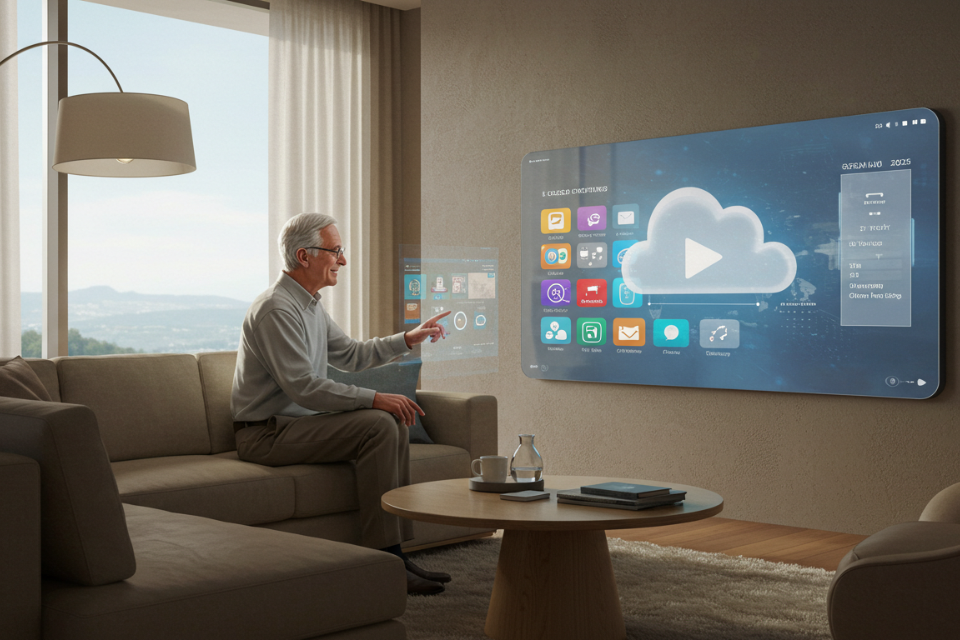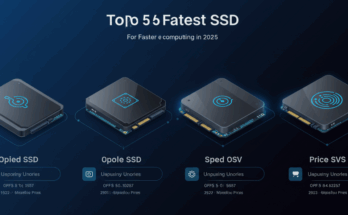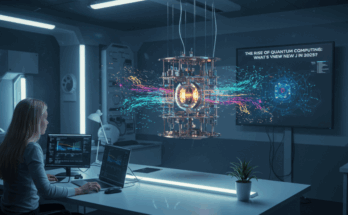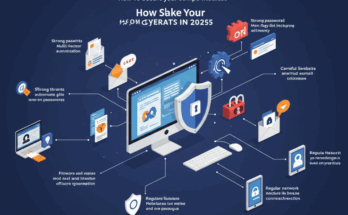The rapid evolution of technology has sparked a debate that resonates with tech enthusiasts and casual users alike: is cloud computing poised to replace personal PCs in 2025? With the rise of powerful cloud-based platforms, remote work, and the increasing demand for seamless digital experiences, it’s a question worth exploring. This article dives into the current state of cloud computing, its impact on personal computing, and whether the traditional PC is becoming obsolete or simply evolving.
What is Cloud Computing?
Understanding the Basics
Cloud computing refers to the delivery of computing services—such as storage, processing power, and software—over the internet. Instead of relying on a local machine’s hardware, users access resources hosted on remote servers managed by providers like Amazon Web Services (AWS), Microsoft Azure, or Google Cloud. This model offers flexibility, scalability, and accessibility, allowing users to work from virtually anywhere with an internet connection.
Why Cloud Computing is Gaining Traction
The appeal of cloud computing lies in its convenience and efficiency. Businesses and individuals no longer need to invest heavily in high-end hardware to run complex applications. For instance, a graphic designer can use cloud-based software like Adobe Creative Cloud to edit high-resolution images without needing a top-tier PC. In 2025, advancements in 5G and fiber-optic internet have made cloud services faster and more reliable, further fueling their adoption.
The State of Personal PCs in 2025
The Enduring Appeal of PCs
Despite the rise of cloud computing, personal PCs remain a staple in homes and offices. Modern PCs are more powerful, versatile, and affordable than ever. From gaming rigs with cutting-edge GPUs to lightweight laptops for students, personal computers cater to a wide range of needs. According to a 2024 report by Statista, global PC shipments reached over 300 million units, indicating that demand for personal devices remains robust.
How PCs Are Evolving
Personal PCs are not standing still. Manufacturers like Dell, HP, and Apple are integrating cloud-friendly features into their devices. For example, many laptops now come with built-in support for cloud syncing via services like OneDrive or iCloud, blending local and remote computing. Additionally, PCs are becoming more specialized, with models designed for gaming, content creation, or enterprise tasks, ensuring they remain relevant in a cloud-dominated era.
Cloud Computing vs. Personal PCs: A Comparison
Performance and Processing Power
One of the biggest arguments for cloud computing is its ability to deliver high performance without requiring expensive hardware. Cloud platforms can handle resource-intensive tasks like machine learning or video rendering by leveraging powerful server farms. However, personal PCs still excel in scenarios requiring low latency or offline capabilities. For gamers, a high-end PC with a dedicated GPU offers smoother performance than cloud gaming services, which can suffer from internet lag.
Cost Considerations
Cloud computing operates on a subscription-based model, which can be cost-effective for businesses or individuals with fluctuating needs. Instead of purchasing a $2,000 workstation, a user can pay $50 a month for access to a cloud-based virtual machine. On the other hand, PCs require a significant upfront investment but offer long-term value, especially for users who prefer ownership over recurring fees. In 2025, the choice often comes down to whether you prioritize flexibility or control.
Accessibility and Convenience
Cloud computing shines in accessibility. With a basic device and an internet connection, you can access your files, applications, and computing power from anywhere. This is a game-changer for remote workers or students collaborating across time zones. PCs, while less flexible, provide a tactile, localized experience that many users still prefer, especially for tasks like coding or creative work that benefit from a dedicated setup.
The Rise of Hybrid Solutions
Blending Cloud and Local Computing
Rather than replacing PCs, cloud computing is complementing them through hybrid solutions. In 2025, many users rely on a combination of local hardware and cloud services. For example, a developer might use a mid-range laptop for coding but offload heavy computational tasks to a cloud server. Companies like Microsoft have embraced this trend with products like Windows 365, which allows users to stream a full Windows desktop from the cloud to any device.
The Role of Thin Clients
Thin clients—lightweight devices designed to connect to cloud servers—are gaining popularity in enterprise settings. These devices are essentially stripped-down PCs that rely entirely on cloud infrastructure for processing. While they’re cost-effective for businesses, they lack the versatility of traditional PCs, making them less appealing for individual consumers who value customization and offline functionality.
Challenges of Cloud Computing in 2025
Internet Dependency
Cloud computing’s biggest drawback is its reliance on a stable internet connection. In 2025, while global internet coverage has improved, rural areas and developing regions still face connectivity issues. For users in these areas, personal PCs remain the more reliable option, as they can function offline and store data locally.

Privacy and Security Concerns
Storing data on remote servers raises valid concerns about privacy and security. High-profile data breaches in recent years have made users wary of entrusting sensitive information to cloud providers. While companies like AWS and Google invest heavily in security, personal PCs offer greater control over data, especially for users who prioritize privacy.
Subscription Fatigue
The subscription-based nature of cloud services can lead to “subscription fatigue.” In 2025, many users juggle multiple subscriptions for cloud storage, software, and streaming services, which can add up quickly. A one-time PC purchase, paired with free or open-source software, can be a more economical choice for budget-conscious users.
The Future of Personal Computing
Will PCs Become Obsolete?
The idea that cloud computing will entirely replace personal PCs in 2025 is unlikely. While cloud services are transforming how we work and play, PCs remain indispensable for many tasks. The tactile experience of a keyboard, the precision of a mouse, and the ability to work offline ensure that PCs have a place in the tech ecosystem. Instead of obsolescence, we’re seeing a shift where PCs and cloud computing coexist, each serving distinct needs.
Emerging Trends to Watch
Looking ahead, technologies like edge computing and AI-driven PCs could further blur the lines between local and cloud-based computing. Edge computing, which processes data closer to the user, reduces latency and could make cloud services feel more like local computing. Meanwhile, AI-powered PCs, equipped with neural processing units (NPUs), are enhancing local capabilities for tasks like real-time video editing or gaming.
FAQ
Is cloud computing faster than a personal PC?
It depends on the task and your internet connection. Cloud computing can provide access to powerful servers for resource-intensive tasks, but a high-end PC often delivers faster performance for local applications like gaming or video editing due to lower latency.
Can I use cloud computing without a PC?
Yes, cloud computing can be accessed from various devices, including tablets, smartphones, or thin clients. However, a PC often provides a more robust and customizable experience for complex tasks.
Is cloud computing more secure than a personal PC?
Cloud providers invest heavily in security, but storing data remotely introduces risks like data breaches. Personal PCs offer more control over data security, especially if you use encryption and avoid connecting to unsecured networks.
Will I save money by switching to cloud computing?
Cloud computing can save money by reducing the need for expensive hardware, but subscription costs can add up. A personal PC may be more cost-effective for users who prefer a one-time purchase and minimal recurring fees.
Are there tasks that still require a personal PC?
Yes, tasks like offline work, high-performance gaming, and certain creative applications (e.g., 3D modeling) are better suited to personal PCs due to their low latency and customization options.



